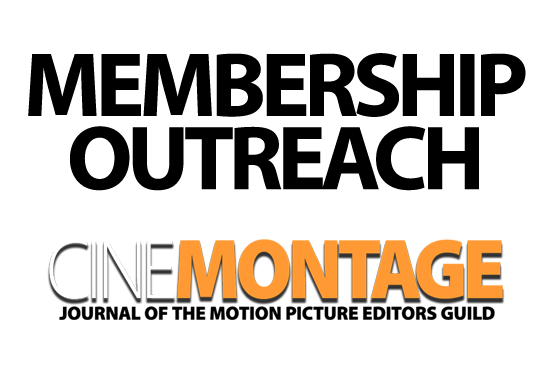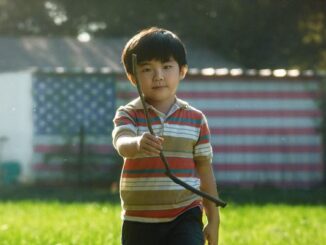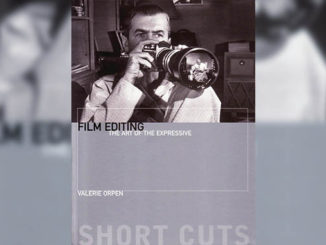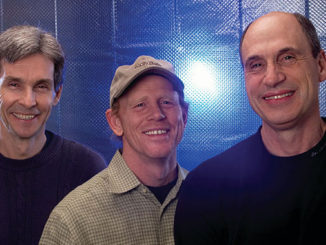
by Stephanie Brown and John Vitale
On Saturday, May 31, the Membership Outreach Committee held a roundtable session with picture editors and assistant picture editors who work in TV to continue the discussion about the ongoing evolution in the television workflow. There was a great turnout of 35 members, almost split evenly between assistants and editors.
The main points of the discussion were schedules, the amount of work expected, tasks other than picture editing, and gaining the confidence to speak up when there are issues in the cutting room. Since the schedules are dictated by the networks, international sales and other factors, it is uncertain as to how much power we have to change things. However, one idea was to facilitate an open dialogue with associate producers and editors to discuss how the two sides can come together to create a more effective approach to meeting deadlines and managing the workloads; this would be a roundtable of associate producers and editors.
One of the main concerns at the May 31 session was the expected workload in the cutting room, such as requiring assistant editors to take on other duties besides what has been assigned to them by the editor. Assistants are being asked to cut recaps and promos by the associate producer, even though it is prohibited under our various contracts.
The overwhelming view is that assistants, even though they view cutting recaps and promos as an opportunity to edit, don’t want to do it because it inevitably puts them behind on their other duties. However, editors are torn on the issue because if the assistant doesn’t do it, then the editor will have to do it. One assistant said, “I have never seen an episode of my show because of the amount of work I have to do.” An editor acknowledged the over-burdened assistants, commenting, “Because my assistant is so tech-savvy, he has become the go-to person for the producer and co-producer, which only takes him away from his assistant editor duties.”
As Guild members, we should not be hesitant to talk to each other about what’s going on in our cutting rooms.
What is the solution to this dilemma? Some networks have a specific department that cuts the promos and recaps; if the network you work for doesn’t have one, there may be an opportunity to develop one. For those assistants who do want to cut promos and recaps, they must be paid as an editor for the week they are cutting. Note that if assistants are paid as editors for more than 30 days within a year, they must upgrade to editor with the Guild. But that poses another question: If an assistant is now editing, who is doing the assistant work?
The assistant-to-editor ratio was another hot topic at the session — chiefly, how to deal with an under-staffed post crew. If the associate producer is not willing to bring in an additional person permanently, perhaps additional help can be hired during crunch times. The associate producer would see how much more efficient it is to get the work done with the additional help, which in the end is probably more cost-effective. This also helps to gain more work for our members, which is the top priority for our Guild.
Assistants are not the only ones overworked. Editors have consistently voiced their concerns that cuts cannot be viewed without a full soundtrack. They are expected not only to cut picture but also to prepare a full complement of sound effects and music, the latter being the most time-consuming. There was some debate over this expectation: Yes, cutting in temp sound and music are part of the editorial process. However, due to current shooting schedules, there is barely enough time to cut the picture. This is why a sound supervisor and music editor should be hired.
Of those who attended the roundtable session, it was the minority opinion that that the picture editor should be delivering a full soundtrack. How can we address this issue? If there is a music editor on your show, introduce yourself, get to know him or her, and ask if he or she would be willing to cut music for a few scenes.
Though we work in small groups in separate places, standing up together is vitally important for change in the future.
How do we tackle the biggest underlying issue — the lack of feeling empowered to stand up for oneself? The difficulty in addressing any one issue on a crew is that all crews are run differently; there is no uniformity as to how things are being done and how problems are addressed. Of course, it would be easier to tackle any issue with a large number of members supporting each other. However, what if it’s just your small crew?
This is where a few strategies can come into play. First, approach the associate producer, or whoever is in charge, as a group and express your concerns that way. If he or she is overseeing multiple crews, and all the crews are experiencing the same issues, perhaps meet amongst yourselves to discuss the issues you’re having and then approach the associate producer en masse. If he or she is unwilling to address the issue due to budget concerns, consider preparing an itemization of all the overtime needed to complete the large list of tasks. It may be less expensive to have another assistant come in for a week than to have everyone overworked.
But what if the associate producer cannot help you? Kindly ask for someone who can. Ask all the editors on the show to approach the executive producers as a group to ask for help; sometimes that can accomplish things. As always, you can contact a Guild Field Representative, your Board of Directors representative or someone at the Guild office about your specific concerns.
There was much interest at the session in having more surveys to gather empirical data about what is truly going on in the workplace. As with our television survey, more in-depth and detailed discussions can help develop more solutions to problems that have been identified through these surveys. In addition to surveys, members are encouraged to start logging the work they are doing; this information is important to have ready when you are asked about the hourly breakdown of your day (two hours doing sound, three hours doing music, one hour comping visual effects, etc.).
Gaining more work for our members is the top priority for our Guild.
As Guild members, we should not be hesitant to talk to each other about what’s going on in our cutting rooms. If it’s happening in one, more than likely it’s happening in others. An idea was suggested that members reach out to other members via phone banking to keep this conversation going, or to start the conversation with those who are unaware of the issues.
It’s important to know we are all part of this Guild. Though we work in small groups in separate places, standing up together is vitally important for change in the future. Join the majority in saying what is reasonable for our workflow. Get other members on board. There is power in solidarity. With all of us, things can change and give us the quality of life we expect.
What are your thoughts on some of these solutions suggested by your fellow members? Perhaps there are solutions of your own you would like to share. We would love to hear from you. Visit the I AM THE UNION Facebook page to get involved and contribute to our membership’s ideas. Comment, add or disagree. All opinions are valued.
Do you have an idea for the Membership Outreach Committee? Please do not hesitate to contact us at outreach@editorsguild.com. We look forward to hearing from you and perhaps assisting you in how to make a difference.





